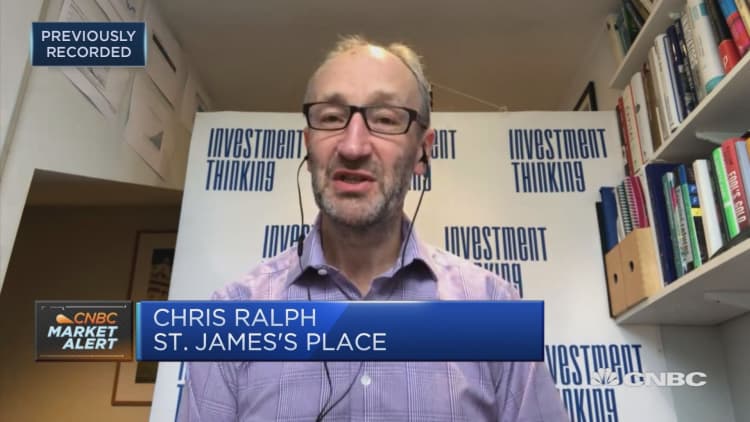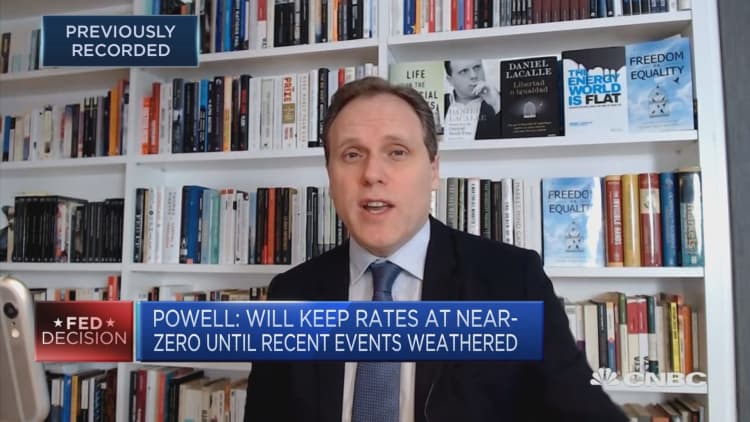Stock markets around the world retreated Thursday as fears over a second wave of coronavirus infections and a gloomy economic outlook from the U.S. Federal Reserve rattled investors.
The pan-European Stoxx 600 dropped over 4% by the market close, with all sectors and major bourses on the continent slipping into negative territory.
Stateside, stocks also fell sharply, with the Dow Jones Industrial Average plummeting over 1,100 points. The Nasdaq and S&P 500 plunged 2.6% and 3.5% respectively.
The moves followed overnight trading in Asia Pacific, where a broad decline for equity markets was led by Australia's S&P/ASX 200 and Japan's Nikkei 225, which shed 3.05% and 2.82% respectively.

Markets have reacted negatively to a dour economic outlook from the Fed on Wednesday. The U.S. central bank forecast a 6.5% contraction in U.S. gross domestic product for 2020, with a 5% rebound in 2021 and 3.5% growth in 2022.
The Fed also ruled out any hikes of its federal funds target rate, which currently sits at an historic low of 0-0.25%, through 2022.
The Fed's outlook has exacerbated skepticism surrounding the much-hoped for "v-shaped" recovery for the global economy as it emerges from the coronavirus pandemic.
"After the initial reopening bounce, the path to full employment will become a lot more challenging," Fidelity International Head of Global Macro Anna Stupnytska said following the Fed's announcements on Wednesday.
"In addition, risks related to subsequent waves of infection, the upcoming elections, weak global recovery and trade tensions would likely complicate the recovery path."

The OECD on Wednesday warned that the pandemic will cause the worst peacetime recession for 100 years, but a second wave of coronavirus infections could see global GDP contract by 7.6% in 2020 and remain "well short" of its pre-crisis level by the end of 2021.
The possibility of a second wave has emerged as a genuine threat in recent days, with reports of spiking cases and hospitalizations in California, Arizona, Texas and Florida after states began lifting lockdown measures and reopening their economies.
The virus has now infected more than 7.3 million people worldwide, with the U.S. accounting for more than 2 million.
Global markets had rallied in recent weeks as countries began easing lockdown measures and returning to economic activity, but the prospect of a much longer recovery period and increasing concern over the second wave of Covid-19 cases seems to be tempering previous optimism.

